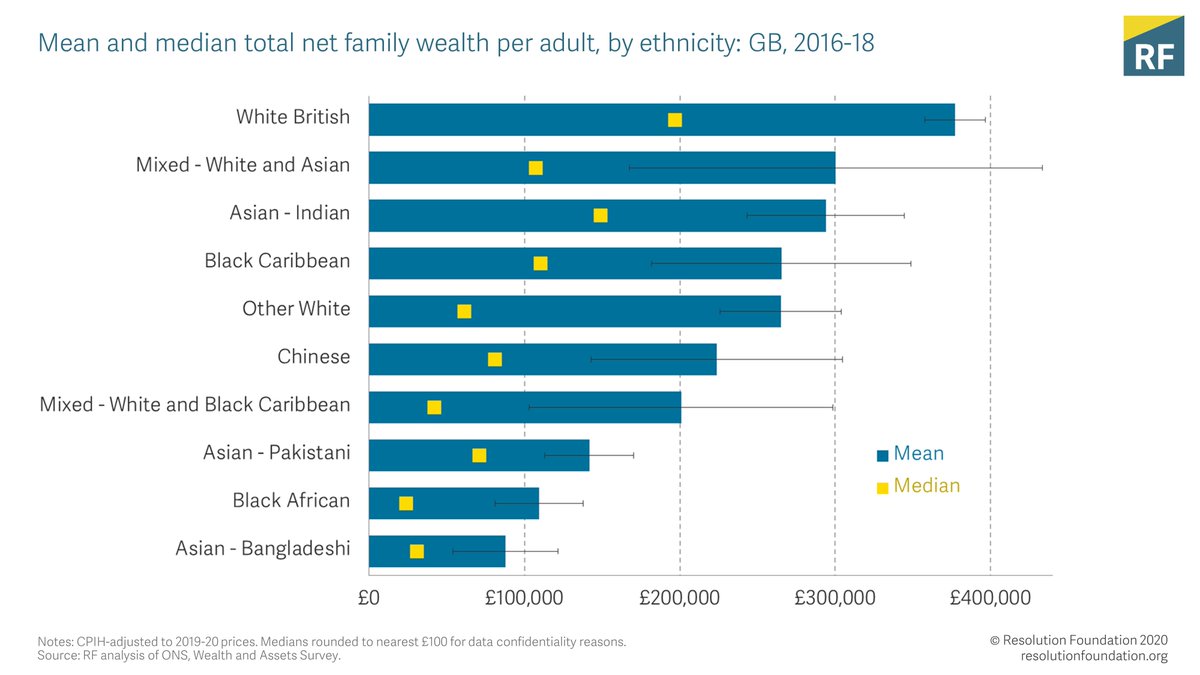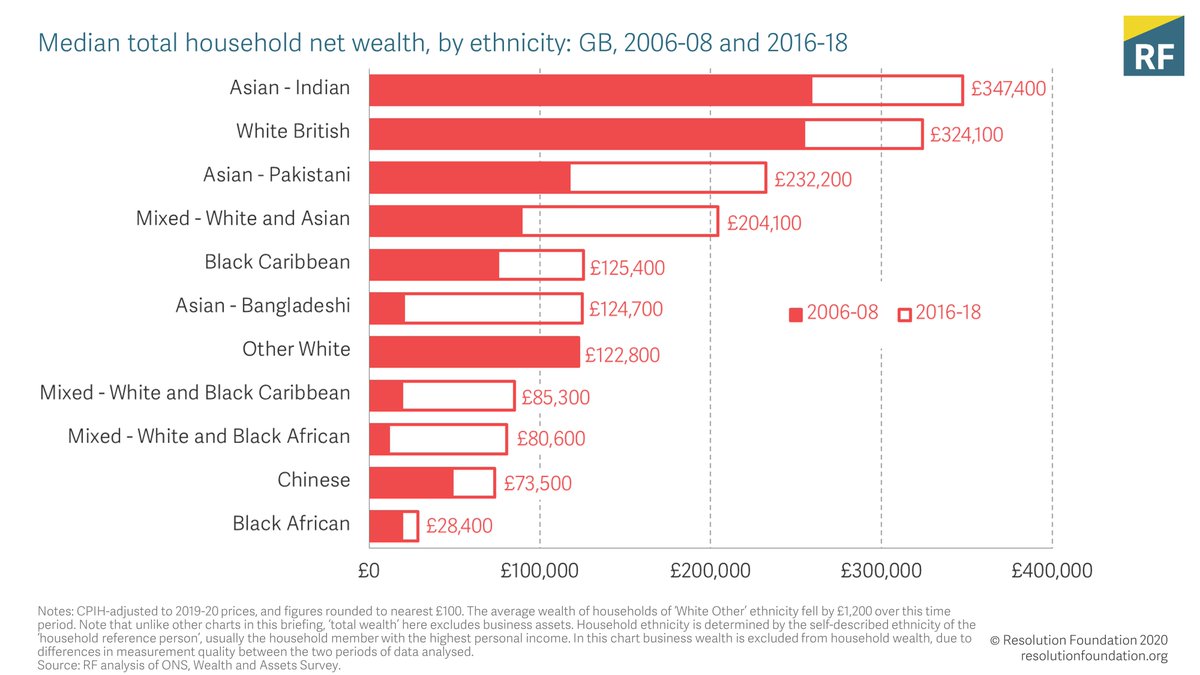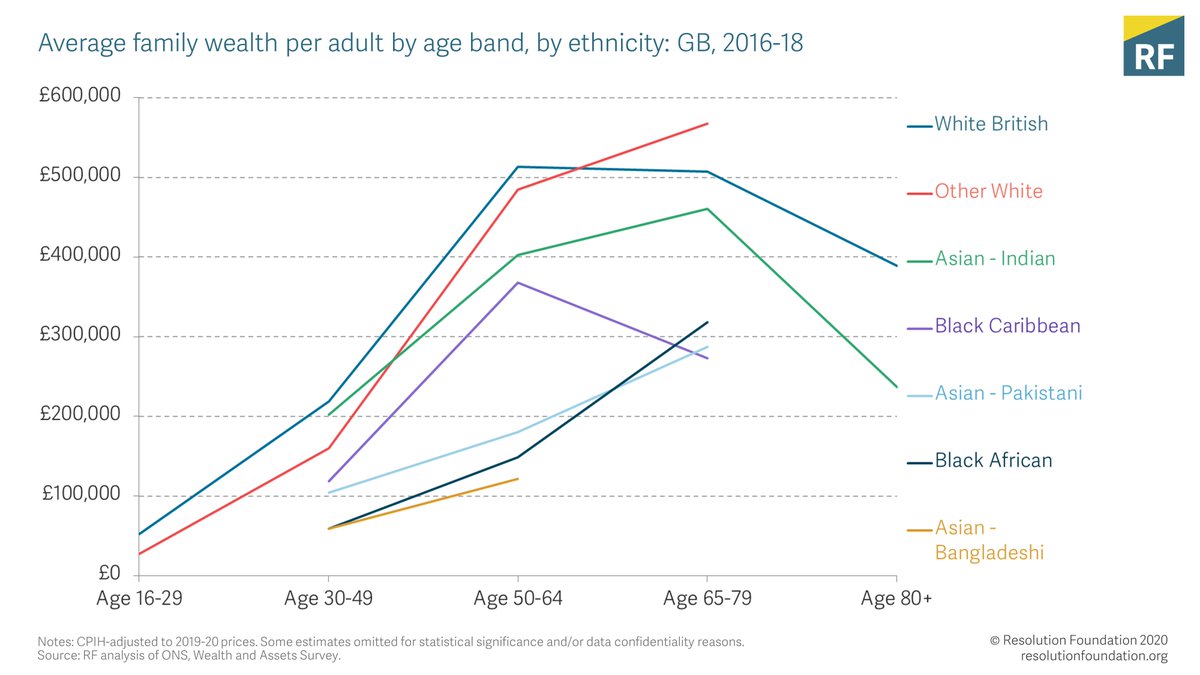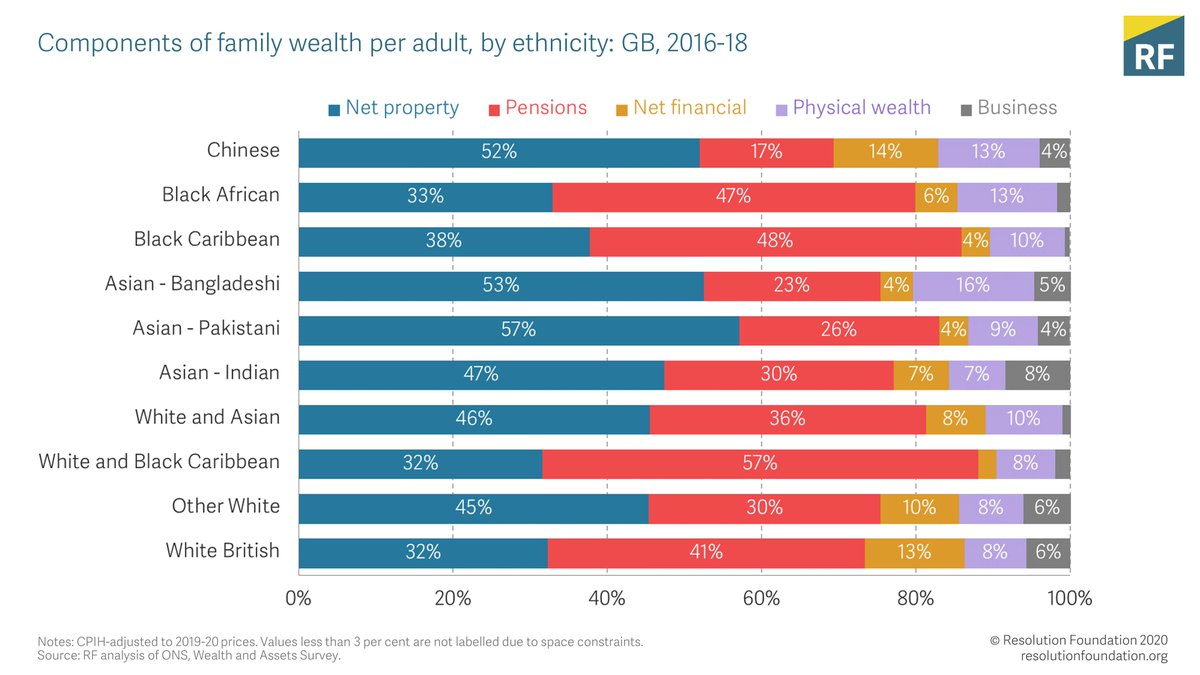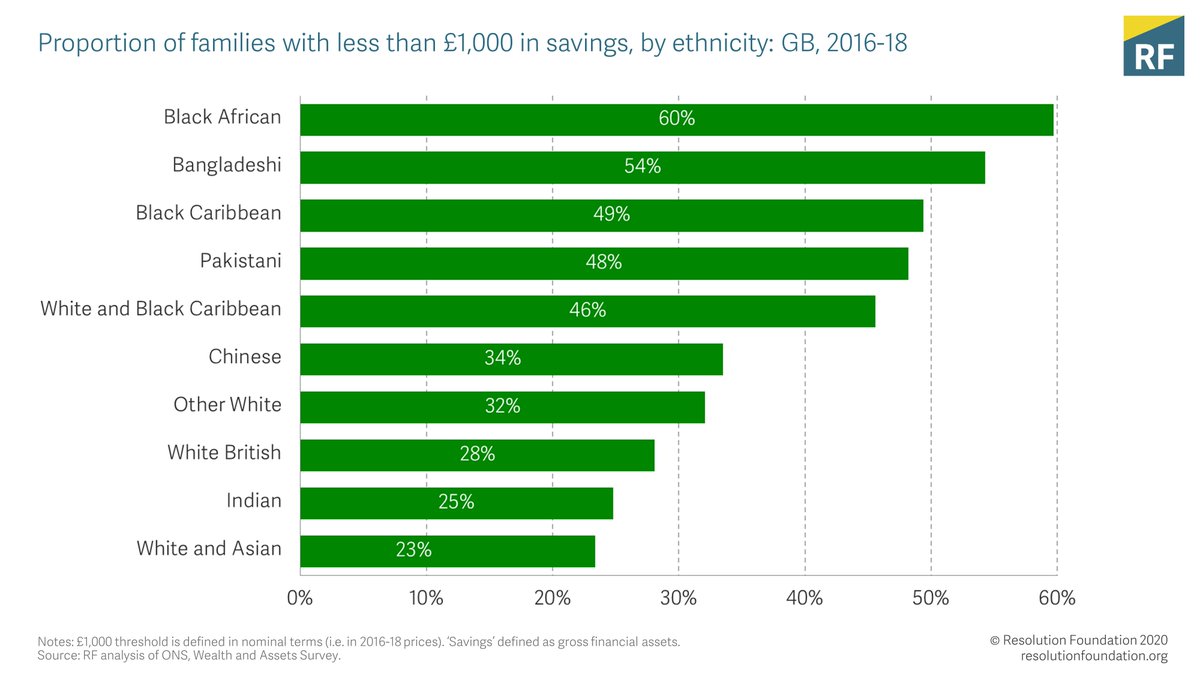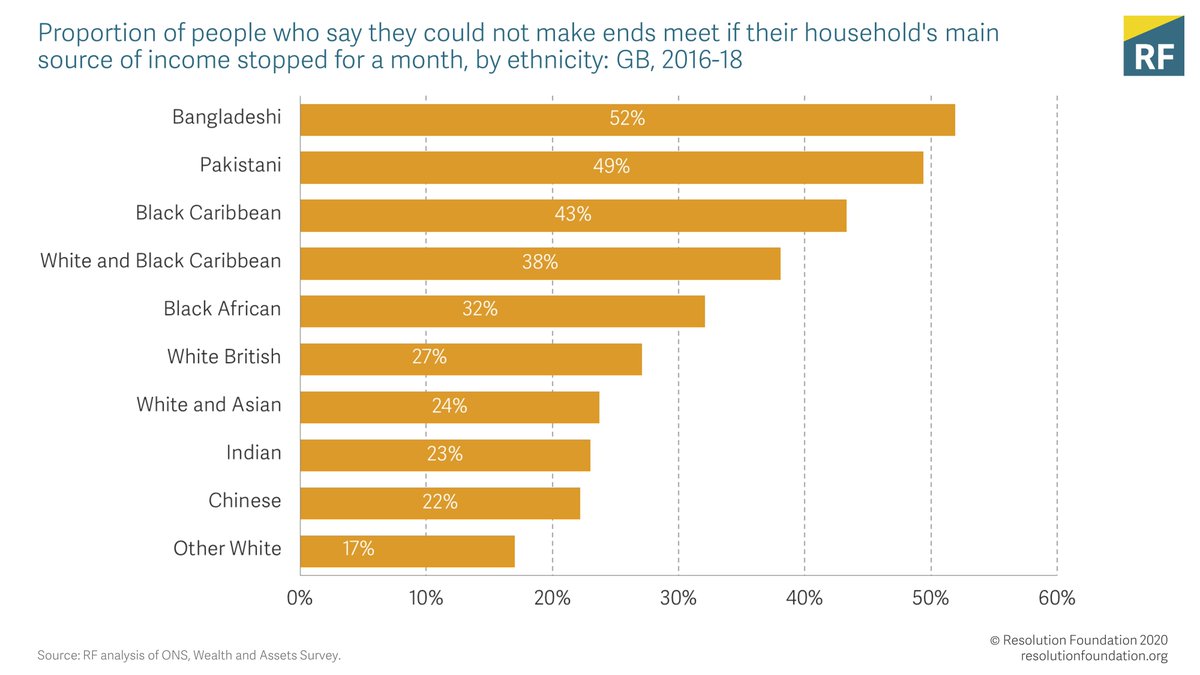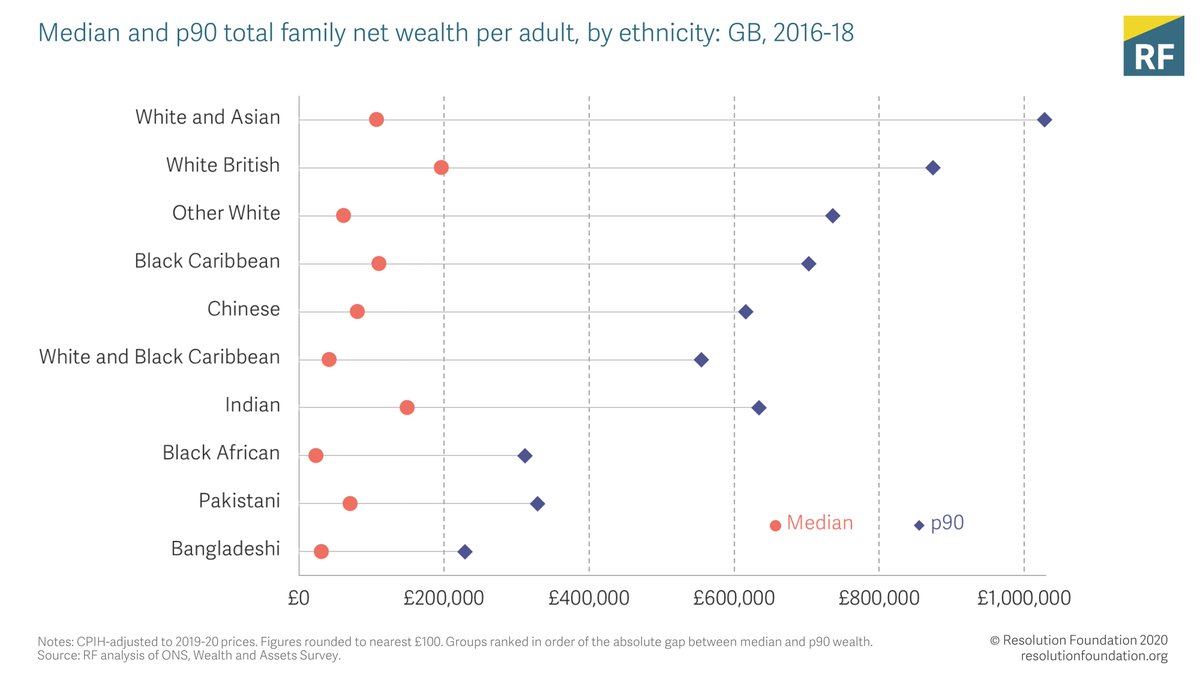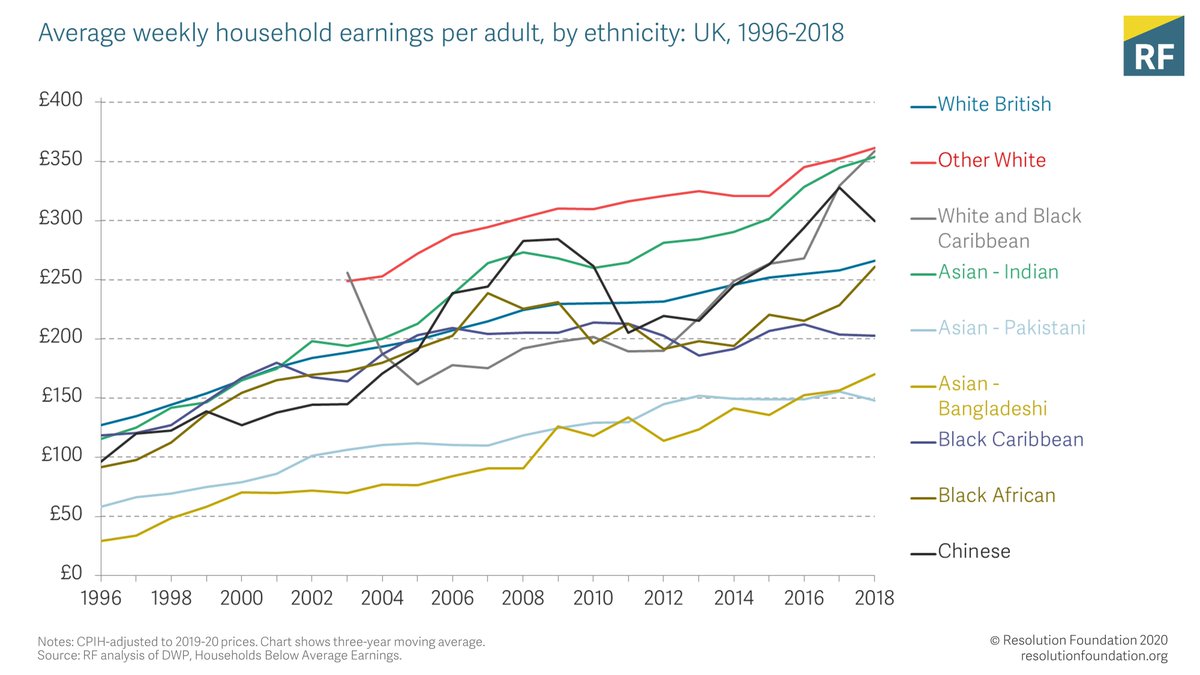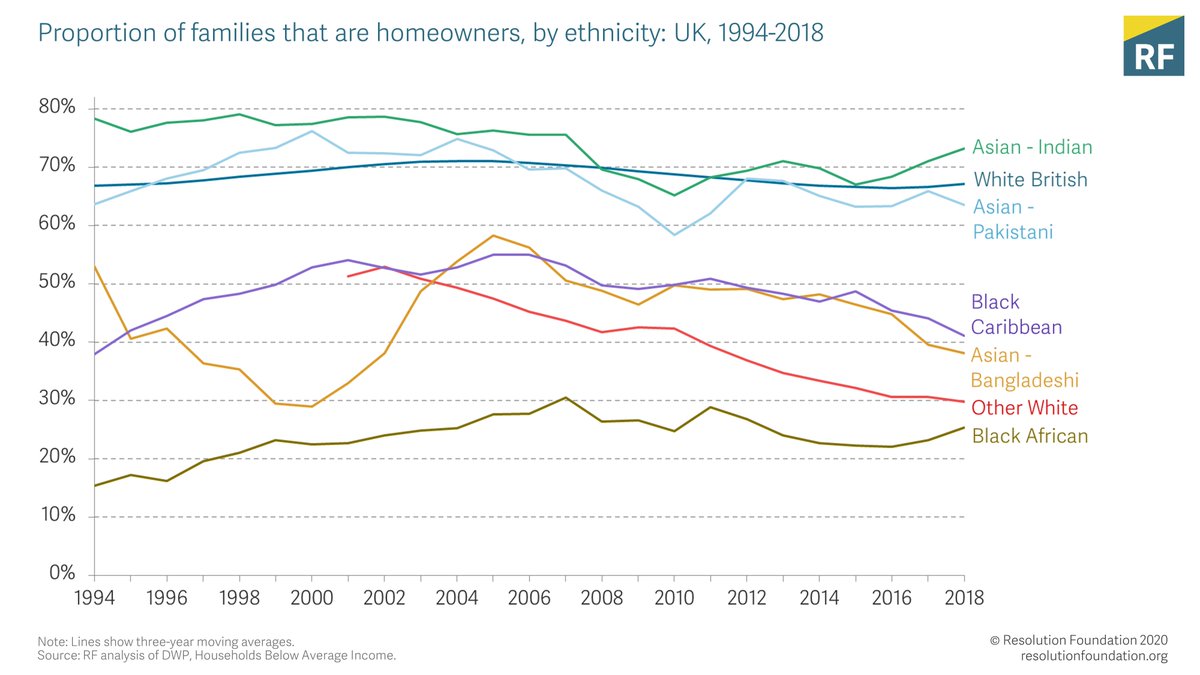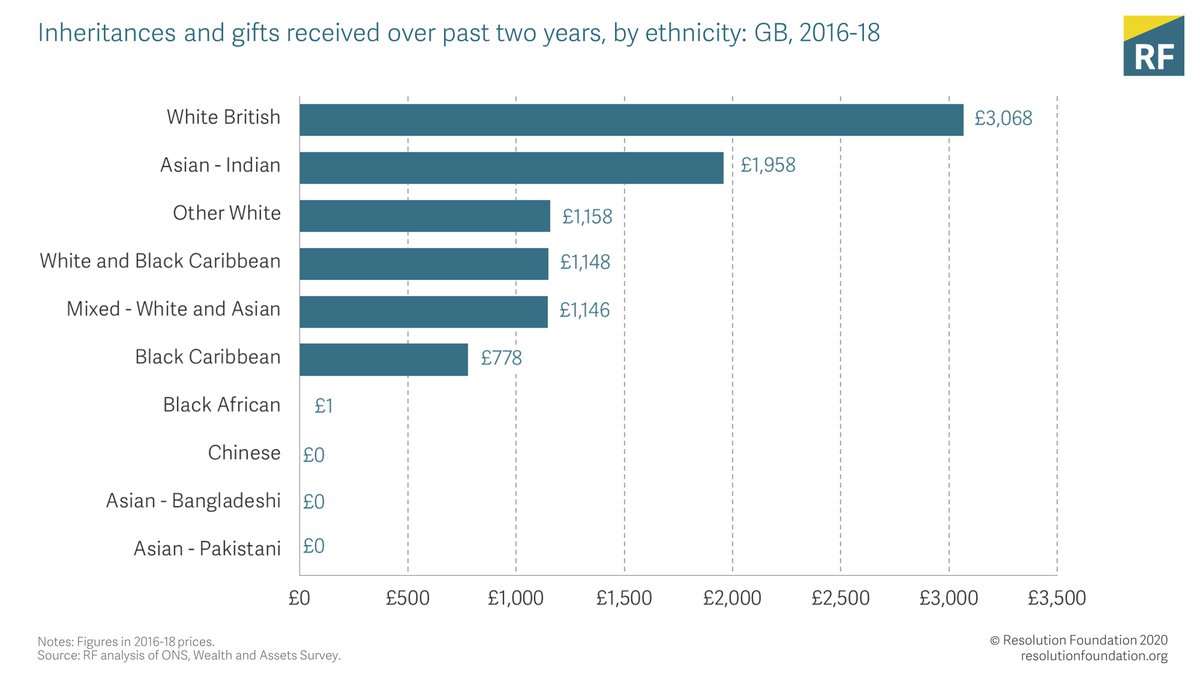Today we have published new research exploring the distribution of wealth between ethnic groups in Great Britain. A short thread with the highlights follows.... https://www.resolutionfoundation.org/publications/a-gap-that-wont-close/
Huge wealth gaps exist - those of Bangladeshi ethnicity typically hold just £31,000 family wealth per adult (median figure), while those with Mixed White and Black Caribbean ethnicity typically hold £41,800.
In contrast to other ethnicity gaps in terms of pay and employment, wealth gaps have barely changed over the past decade.
Sources of wealth differ across ethnic groups. For example, properly wealth accounts for the majority of wealth held by Pakistani, Bangladeshi and Chinese families (compared to 32% of White British families' total wealth).
Wealth is often considered a lifetime living standards issue. But it's taken on immediate resonance during the crisis. On the eve of the pandemic, the majority of Black African and Bangladeshi families had less than £1,000 of savings to fall back on if hard times came around.
And similarly, people of Bangladeshi and Pakistani ethnicity are most likely to say they could not make ends meet for more than a month
Wealth gaps within ethnic groups are biggest among those with high median wealth, such as White British households
Britain's BAME wealth gaps are deeply embedded and will take time to close. And while there has been some progress in recent years in closing ethnicity gaps for household earnings, they remain very wide.
There have also been persistent and very wide gaps in homeownership rates between ethnic groups over the 25 years
The next generation of wealth gaps? People of Black African, Chinese, Bangladeshi and Pakistani
ethnicity on average receive no income from inheritances
ethnicity on average receive no income from inheritances
Read the full report on wealth gaps between and within ethnic groups across Britain here https://www.resolutionfoundation.org/publications/a-gap-that-wont-close/

 Read on Twitter
Read on Twitter